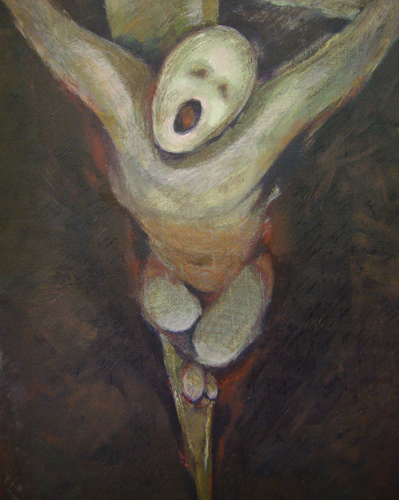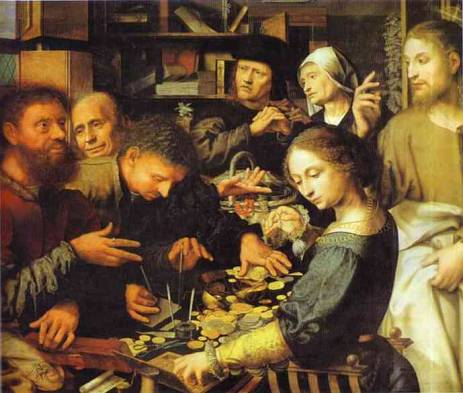 In the last article, I discussed the strange swearword ‘raca’ that turned up, or got edited out of, last Sunday’s Gospel from Matthew. In this morning’s Mass, the Daily Eucharistic Lectionary gave us Mark 8.22-26 for our Gospel. There’s not really much of a link between the two, apart from the spit.
In the last article, I discussed the strange swearword ‘raca’ that turned up, or got edited out of, last Sunday’s Gospel from Matthew. In this morning’s Mass, the Daily Eucharistic Lectionary gave us Mark 8.22-26 for our Gospel. There’s not really much of a link between the two, apart from the spit.
Today’s Gospel is the pericope of Jesus‘ healing of a blind man by putting his spit in his eyes. The healing takes two goes — first, the man sees people but they look like trees walking around. Characteristically for Mark’s Gospel, Jesus tells him not to tell. The spit, the walking trees and the messianic secret all add up to make a rather odd incident.
The oddness of this incident is one of the pieces of evidence that Mark’s is the earliest gospel. The three synoptic gospels — Matthew, Mark and Luke — share a lot of passages in common, some even verbatim, and often order this material in a similar way. Mark, being the shortest gospel, has parallel texts of almost every passage in either or both Matthew and Luke, so it seems that Matthew and Luke are based on Mark. Markan priority — the hypothesis that Mark’s Gospel was written first — is strengthened by the few scraps of Mark that do not appear in the other two. One of them is the spit-and-trees pericope above.




 He had given us this look that cut off our complaints and told us to go with him to see. What would our families say if they saw us? We hoped no one we knew would see us.
He had given us this look that cut off our complaints and told us to go with him to see. What would our families say if they saw us? We hoped no one we knew would see us.